CDC to appeal judge’s mask ruling
Fox News senior White House correspondent Peter Doocy discusses the CDC announcing they will seek an appeal after the federal mask mandate was struck down on ‘Special Report.’
Masking up (or not) against COVID-19 and its variants today has become very much a personal choice.
Mask mandates have been lifted for people traveling on many forms of public transportation — plus within travel hubs, communal areas and private businesses that are frequented by the public.
The U.S. Centers for Disease Control and Prevention (CDC) still recommends face mask wear in public for unvaccinated travelers out of an abundance of caution or when infection rates rise to an "orange" community risk level.
President Joe Biden last Tuesday said masking on airplanes is "up to" each person’s individual preference when reporters asked if American travelers should still wear masks after he landed in New Hampshire.
CDC 'COVID-19 BY COUNTY' TOOL HELPS YOU LOOK UP GUIDELINES BY LOCAL AREAS
Hours later, the U.S. Department of Justice announced it would appeal the court order that lifted mask mandates on federal property if the CDC deems it necessary, according to Reuters.
COVID-19 FACE MASKS GIVEN THE RISE OF VARIANTS: WHAT TO KNOW
While it’s not immediately clear whether the mandate will be brought back, varying stances about mask wearing can often make today's big question — should I wear a mask not? — tough to answer.
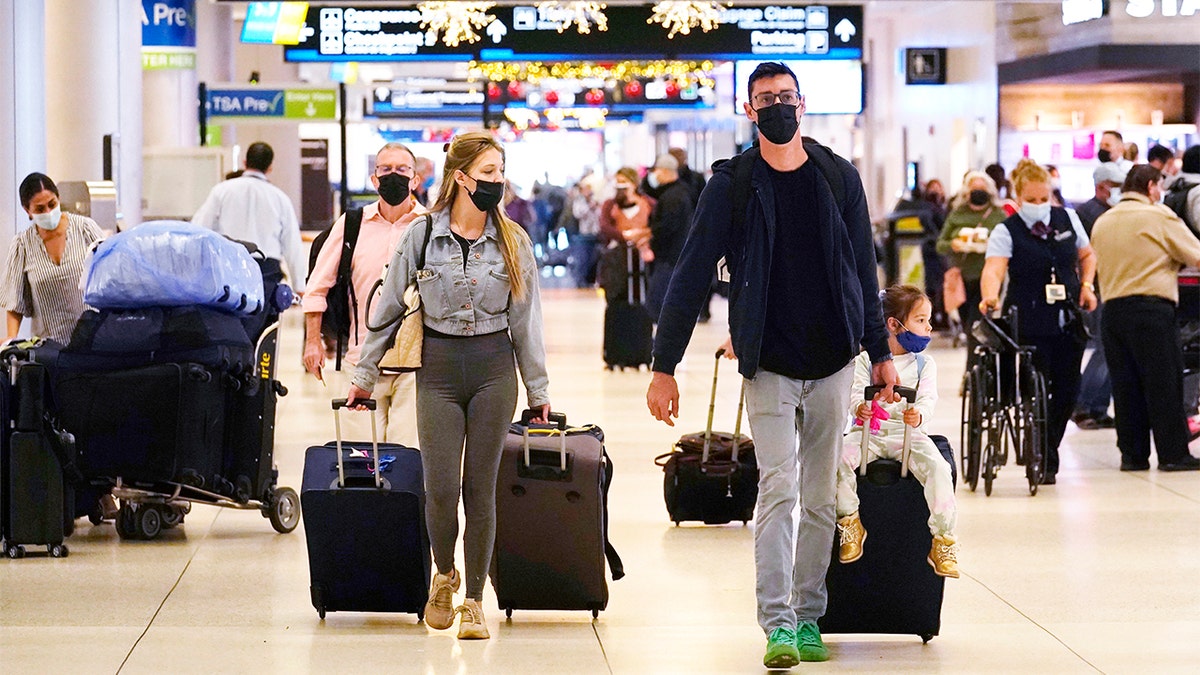
Holiday travelers are shown pushing their luggage inside Miami International Airport on Tuesday, Nov. 23, 2021, in Miami, Florida. (AP Photo/Marta Lavandier)
Fox News Digital reached out to several health experts for their thoughts — here is what they said about how to determine to wear a mask or not.
Are masks necessary?
"For most people in lower-risk groups, we should go back to living like we used to during flu season," Dr. Frank Contacessa, an internist at Northwell Health Physician Partners in New York, wrote in response to Fox News Digital’s inquiry.
"During flu season, we all assume a certain degree of risk of getting the flu every time we go out in public," he continued. "The COVID-19 risk for most people has become comparable to our risk during a typical flu season."
THE BEST SEAT TO AVOID CORONAVIRUS EXPOSURE ON AN AIRPLANE
People should take "routine precautions" such as washing their hands frequently and avoiding face touching in order to lower their chance of COVID-19 transmissions, according to Contacessa. This practice is also highly recommended during flu season.

Medical surgical masks have been used by the public as a physical shield against the novel coronavirus. (iStock)
For those who are in "higher risk groups," Contacessa said, "it may make sense to continue to wear a mask in areas with higher concentrations of people."
WHAT TO KNOW WHEN TAKING A CRUISE AS COVID-19 CASES RISE
Contacessa recommends N-95s or KN-95 masks for individuals who wish to wear a mask occasionally or regularly.
He said he would "advise high-risk people to abandon cloth masks and paper surgical masks, and choose N-95s or KN-95 masks. The former have shown to be rather ineffective against COVID, while the latter are much more efficient at blocking virus particles."
Children under the age of 18
Masking for children should be considered in cases where they’ll be around "around a lot of children and are in closed settings," said Shanina Knighton, Ph.D., a registered nurse and instructor at Case Western Reserve University in Cleveland, Ohio.
Knighton added that indoor locations are a place where kids are more likely to "acquire or transmit germs through play as they interact with their peers and commonly touched items."
In these circumstances, Knighton said mask wear can help children in minimizing direct contact with their mouth and nose — two areas where illnesses are commonly transmitted.
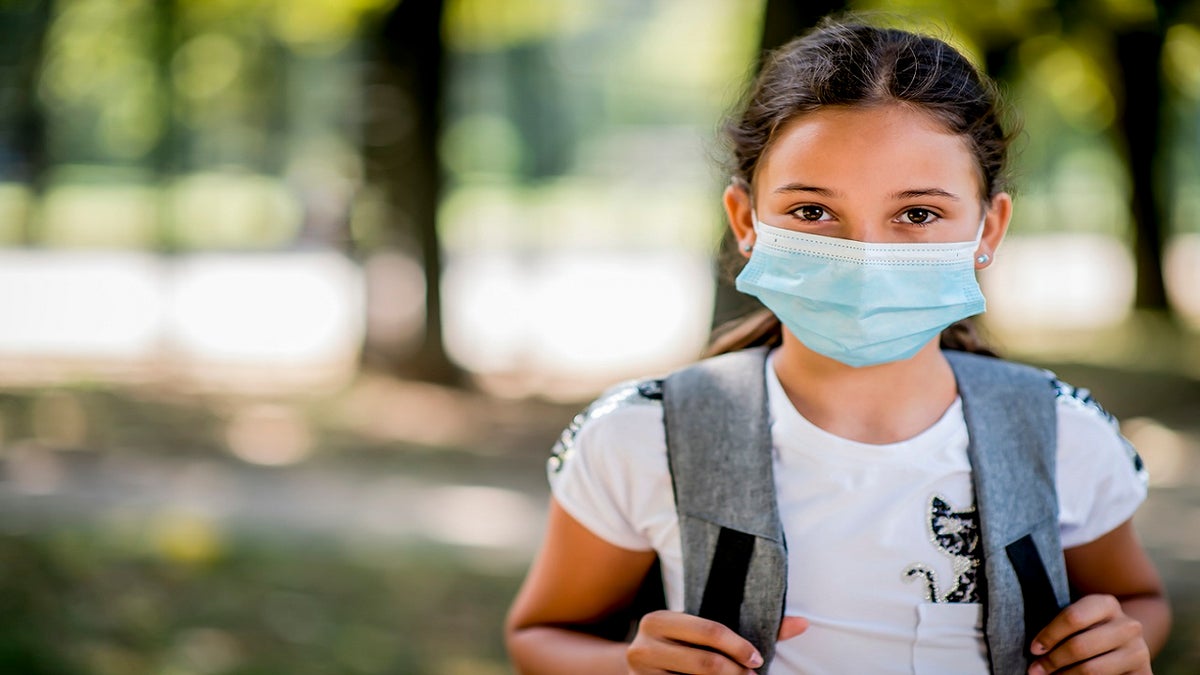
Children have been wearing face masks in many schools and neighborhoods around the country over the past two years or so. (iStock)
Peter Pitts, co-founder of the Center for Medicine in the Public Interest, said that children who get infected with COVID-19 are likely to "suffer mild symptoms that pass quickly," but they also have a higher chance of spreading the disease.
HERE’S HOW PARTIES HAVE CHANGED AMID COVID-19, ACCORDING TO AN EXPERT
"Vaccination is the key to freedom from masking," Pitts said.
"[Mask wearing] becomes more of a personal choice than a public health imperative."
If parents or guardians believe their child is "healthy" and doesn’t have "risk factors," they can let their child ditch masks entirely if they’re comfortable doing so, according to Contacessa.
"Of course, higher risk children should consider continuing their mask-wearing in crowded situations," he added.
Adults under the age of 62
Much like children, adults under age 62 might want to consider wearing a face mask against COVID-19 if they’ll be in an indoor setting where crowding is imminent.
LONDON'S OLDEST WOMAN TURNS 108, SAYS COVID-19 IS 'NOTHING COMPARED TO WORLD WAR I'
"The purpose of a mask is to filter the air that is entering and exiting your lungs," said Govind Rao, a professor at the University of Maryland, Baltimore. "[Masks are designed for] filtering out particles, including virus."
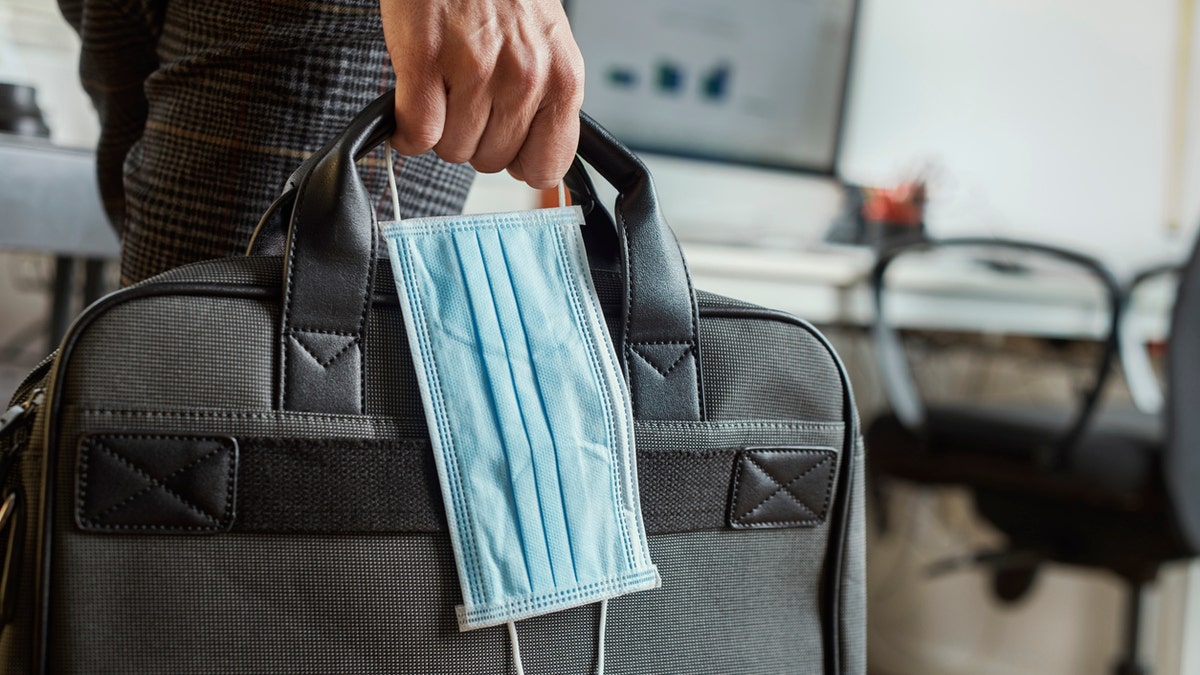
Some adults have been wearing face masks as they've returned to in-person work. (iStock)
Pitts said that "precautionary measures" such as masking "are less about social interaction and more about personal risk profile."
In his own words, "A healthy, vaccinated adult, such as a classroom teacher, does not have to take the added precaution of wearing a mask — unless they feel safer doing so. It becomes more of a personal choice than a public health imperative."
However, he also recommends COVID-19 vaccination for adults who aspire to go mask-free because "vaccinated adults who become infected are less likely to infect others" and are "likely also suffer mild symptoms, which will be transient."
Seniors age 62 and older
Older people are prone to having a weaker immune system, according to Dr. Kwadwo Kyeremanteng, a critical and palliative care physician at The Ottawa Hospital. He recommends that if other people are around indoors, seniors should wear protective masks when accomplishing tasks.
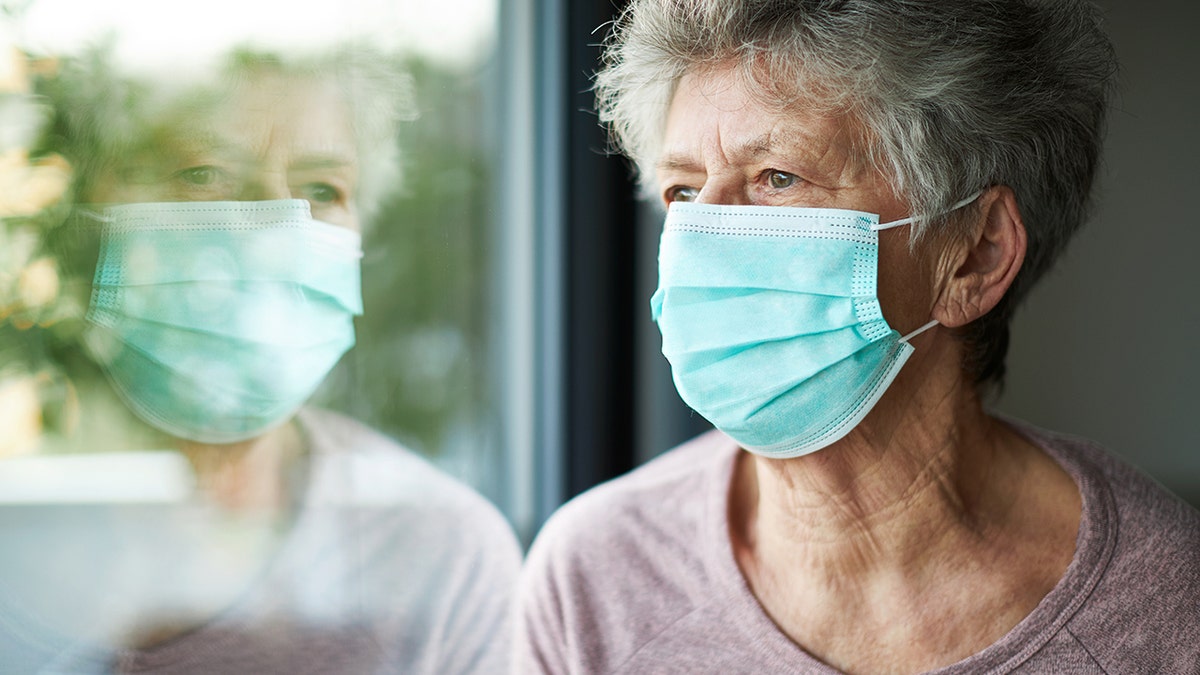
Seniors have been wearing face masks in public spaces as a way to protect themselves from COVID-19. (iStock)
Besides masking, Pitts suggests seniors get vaccinations and booster shots to protect themselves from COVID-19.
4 IN 10 AMERICANS CRIED ABOUT MONEY DURING THE COVID-19 PANDEMIC: STUDY
"More antibodies are better than fewer as they provide a more robust level of protection against infection," he said.
If you’re immunocompromised
Medical professionals overwhelmingly agree that people in immunocompromised groups should wear a mask regardless of vaccination status.

People who are immunocompromised have been wearing face masks before and during the COVID-19 pandemic. (iStock)
"Unfortunately people will still cough, sneeze and transmit germs in public indoor settings," said Knighton. "Masks can provide you some protection against droplets."
She continued, "For this population, getting COVID-19 may have more harmful effects, so risk-lowering measures such as correctly masking and hand hygiene can help."
If you’re constantly surrounded by people
People who lead a lifestyle or who work in an occupation in which they cross paths with many strangers on any given day should make "decisions according to their own risk factors and level of comfort," said Contacessa.
CLICK HERE TO GET THE FOX NEWS APP
Kyeremanteng, on the other hand, said hospital and senior home staff, frontline workers, healthcare professionals and unvaccinated people should still wear masks in busy settings.
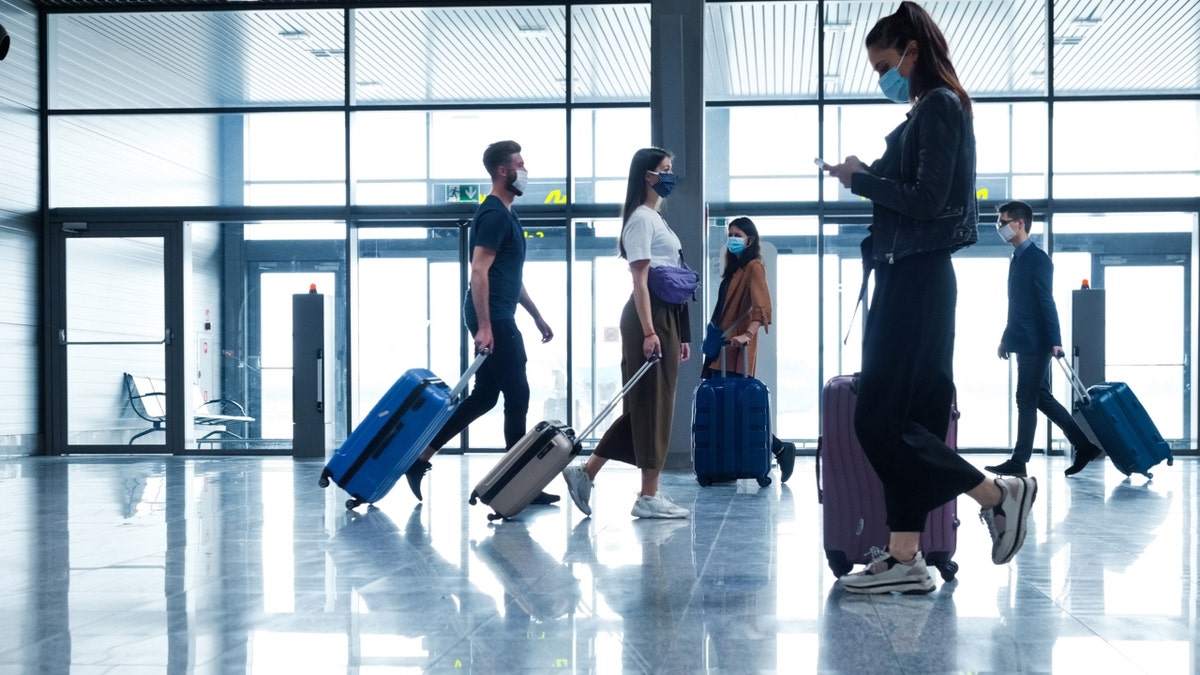
Medical experts and the CDC recommend face mask wear for people who are traveling in closed spaces. (iStock)
"It is about more than just being in a space, but being aware of what you touch," said Knighton. "Hand hygiene is still the most important thing you can do to decrease the risk of transmission. The contact that you have with your hands and your cell phone — your third hand — are still the main contributors to you getting yourself sick."
High-touch areas that could increase the chance of infection include commonly used doors, buttons, countertops and surfaces, according to Knighton.
FOLLOW US ON FACEBOOK FOR MORE FOX LIFESTYLE NEWS
"Touching them and then touching yourself will put you at risk," she said.
Where should you wear masks?
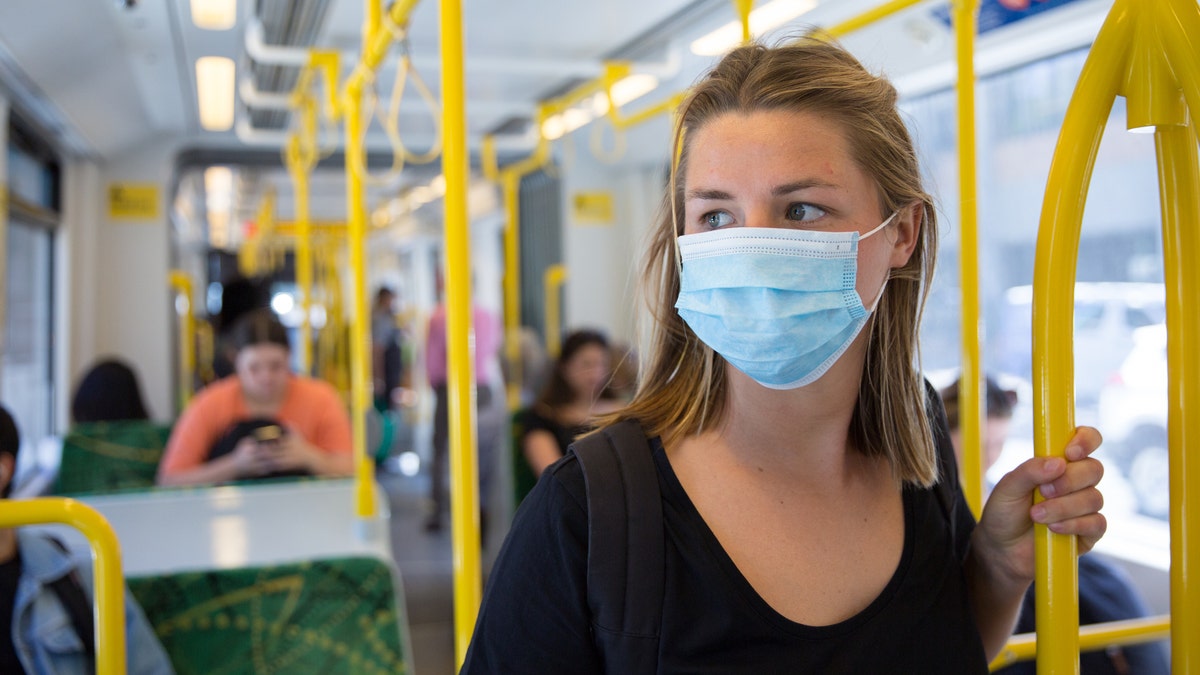
Medical experts and the CDC say people should wear face masks if they're going to be in close contact with strangers indoors. Vaccination is often recommended. (iStock)
Knighton recommends wearing masks in elevators, public transportation, rideshare vehicles, restrooms and any location where you’ll be in a "closed space with strangers."
"The safest place to be unmasked is outside or in very open spaces inside of buildings."
"A cough or sneeze in these spaces without being masked increases the risk of transmission," Knighton said. "The safest place to be unmasked is outside or in very open spaces inside of buildings."
"Studies show that COVID-19 doesn’t transmit well in outside air, which is why there were no major outbreaks during protests," Knighton continued. "Even when the air seems like it isn’t moving outside, there is constant movement."
Final considerations
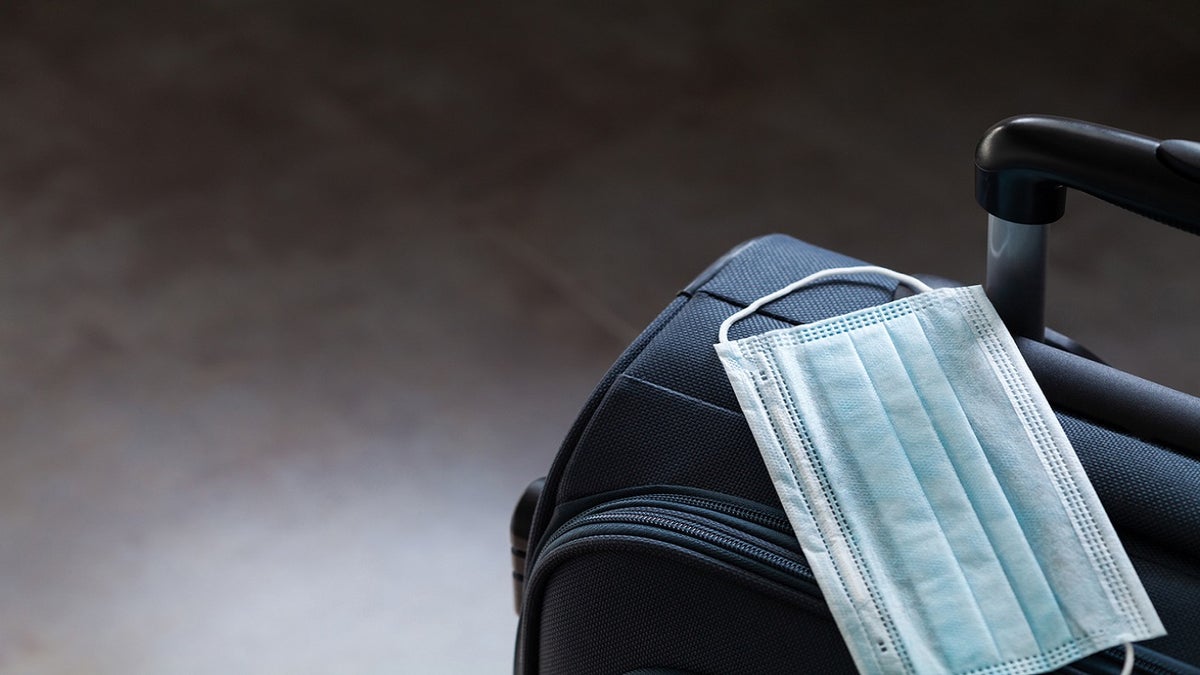
Face masks offer a layer of protection for wearers and surrounding people. (iStock)
Health and risk tolerance ultimately determine a person’s decision for wearing a mask out in public, according to Rao.
CLICK HERE TO SIGN UP FOR OUR LIFESTYLE NEWSLETTER
"However, another aspect to consider is that you may be infected and asymptomatic and may spread the virus," Rao said.
"In this case, consider that wearing a mask protects people around you."


